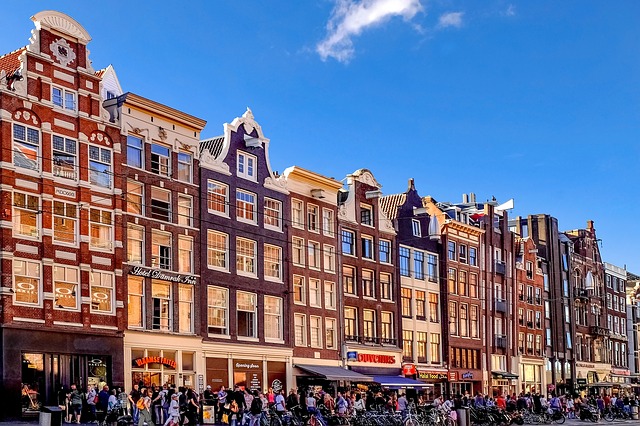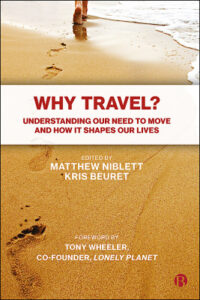Influencing tourist behaviour in Amsterdam: beer bikes, taxes and smart technology
December 2017
Amsterdam has banned beer bikes from the city centre, claiming that these pedal-powered beer bars favoured by party-loving tourists are a ‘public order problem’ which cause traffic congestion and antisocial behaviour. The ban is one step taken by the city in trying to combat some of the negative impacts of its booming tourist industry, which hosts 17 million visitors annually in a city of only 850,000 residents. In addition to the pressure placed on local resources by such a volume of visitors, many tourists are attracted by Amsterdam’s reputation for a relaxed attitude to drugs and prostitution and come to engage in behaviours that many locals believe the tourists “wouldn’t dream of doing back home.”[1] As well as banning beer bikes, Amsterdam’s city council plans to impose a tax on tourist accommodation in an attempt to reduce the number of budget tourists and discourage what many officials and residents view as ”the wrong type of tourism.”[2]
Amsterdam is one of a growing number of tourist destinations worldwide trying to lessen the negative impacts of their popularity. As we have explored in previous blogposts, destinations such as Machu Picchu and The Galapagos have been restricting tourist numbers, and some ‘party destinations’ such as Magaluf have imposed restrictions on the sale of alcohol in order to reduce antisocial tourist behaviour. But Amsterdam’s tourist body, i amsterdam, has been looking beyond policies such as bans and taxes to find subtler ways to influence tourist behaviour.[3] Specifically, they have been using technology to understand and influence the choices tourists make about where they visit, in an attempt to ease congestion at the most popular sites and encourage tourists to visit lesser-known locations. Using data from the Amsterdam City Card (which combines public transport and the entrance fees to a range of attractions), they found that most tourists followed similar itineraries, resulting in overcrowding at certain points. As Geerte Udo, Director of Marketing Strategy at i amsterdam, explains: “We can see exactly how these people behave: Everybody comes to the city and goes to the Van Gogh Museum in the morning, and [takes] a canal boat in the afternoon.” One simple but effective intervention has been to suggest alternative itineraries to tourists when they purchase the card, and another has been a live feed on the i amsterdam website showing congestion at the most popular sights, which has caused 50% of users to change their plans. The i amsterdam team have also been trialling more high-tech solutions such as an AI-powered service which uses information from the user’s Facebook profile about their preferences and interests to suggest an itinerary for that individual encouraging them to look beyond the typical tourist hot-spots.
Current initiatives by i amsterdam may not directly reduce the worst excesses of tourist behaviour, but do demonstrate that there are myriad ways to mitigate some of the problems of overtourism and to influence tourist choices so as to reduce negative impacts on the destination, and improve the experience for tourists themselves. As our use of smart technology and the ability to use such data increases, the opportunities for such interventions will surely increase. And as the impact of tourism grows, the need for innovative means of influencing touristic behaviour, particularly to improve sustainability, will become ever more important.[4] As the initiatives of i amsterdam have shown, understanding how and why people make the choices they do can greatly help in influencing behaviour and improve outcomes for travellers and the destination. This is a central theme of the ITC’s Why Travel? project, which aims to better understand why people travel and thus to improve decision making about travel at an individual and policy level. The project has engaged experts from across the arts and sciences to explore these issues and to offer important lessons for the future of travel. For more information on the project, including news stories and videos, see www.whytravel.org
Notes:
[1] https://www.theguardian.com/cities/2017/nov/01/amsterdam-tourists-worst
[2] https://www.theguardian.com/world/2017/sep/11/amsterdam-to-increase-tourist-tax-to-reclaim-city-for-residents
[3] https://www.cntraveler.com/story/how-amsterdam-is-solving-its-overtourism-problem
[4] Research is being done on this area, for example how marketing can be used to generate change within the tourist industry and consumer choices: http://www.tandfonline.com/doi/full/10.1080/09669582.2017.1301721
SEE ALSO:
Tourism topic page
Technology topic page
Tourists behaving badly blogpost
Last chance tourism blogpost
Restricting tourist numbers blogpost



